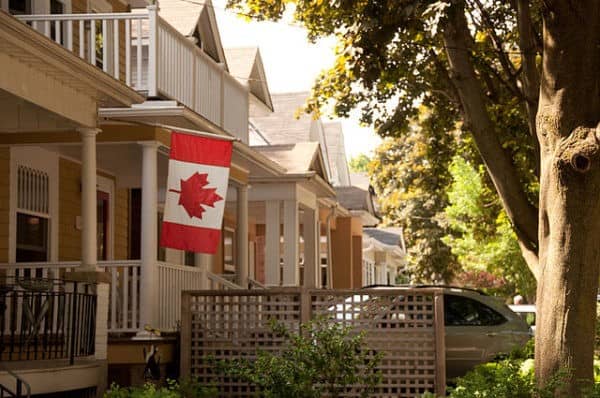A lack of supply isn’t to blame for high Toronto housing prices: report

 Is the Toronto housing supply to blame for skyrocketing prices?
Is the Toronto housing supply to blame for skyrocketing prices?
A new report on housing from Ryerson’s City Building Institute argues that Toronto’s housing boom can be curtailed with both a foreign home buyers tax and a progressive surtax on expensive homes, one which would be offset by income taxes paid.
The goal of the two-pronged attack, says Josh Gordon, assistant professor at the Simon Fraser School of Public Policy and author of the report, would be not just to discourage foreign buyers but ultimately to lower expectations of continued price increases which Gordon sees as the real root of the problem. “The foreign buyer tax in Vancouver has really calmed the market,” says Gordon to the CBC. “The main thing is that it seems to have affected buyer expectations and so some of the panic buying some of the speculation seems to have subsided.”
The debate over what’s causing Toronto’s skyrocketing housing prices has many pointing fingers at a slowdown in supply, saying that the city’s Greenbelt policy is constraining new building and, coupled with a growing population, has created a lack of available housing. Yet, Toronto’s population growth has slowed in recent years, reads the report, and the overall rate of construction of new homes has been keeping up with increases in population. Further, there is still plenty of available land in the GTA to build on including an estimated 59,000 hectares of “Whitebelt” land in the buffer zone between existing urban development and the Greenbelt.
In fact, the report maintains that Toronto’s regulatory and geographical constraints are no more challenging for developers than they are in most other North American municipalities —and yet, housing prices are significantly higher, showing that supply-side dynamics “cannot come close to generating the kinds of prices Toronto is currently experiencing,” says the report.
What does prove telling is that the few other North American markets with skewed housing prices, including Los Angeles, San Diego and San Francisco, are all locations which have seen large amounts of foreign investment in recent years.
The report points to Canada’s Immigrant Investor Program (IIP), begun in 1986, and aimed at encouraging foreign business investment in Canada by attracting wealthy migrants with the promise of citizenship through interest-free loans to the Canadian government. Scrapped in 2014 because it didn’t produce the sought-after economic activity, what the IIP did do, argues the report, was allow foreign wealth to be dumped into high-end housing in cities like Vancouver and Toronto, artificially boosting housing markets.
Effectively, that extra wealth along with historically low interest rates caused domestic speculators to see real estate in Vancouver and Toronto as a safe investment, yielding better returns than government bonds even as housing prices keep climbing.
The solution is for Toronto to implement a foreign buyer tax similar to Vancouver’s 15 per cent tax applied to residential transactions where the buyers are not Canadian citizens or permanent residents, says Gordon. That move has produced instant results for Vancouver’s market, where sales for detached houses are down 54 per cent from the same time last year and attached units are down 40 per cent. Yet Toronto’s housing fix will require more, in the form of a progressive property surtax. “Those who own property based on foreign sources of income or wealth are hit by the surtax and everyone else is more or less spared,” says Gordon. “That discourages foreign ownership and that would bring prices down better than a foreign buyers tax.”
The urgency to correct the trend is huge, says Gordon. Although housing booms are often seen as a sign of growing wealth and prosperity, the inflated costs create generational and class inequalities and can push homebuyers into dangerous levels of debt. “This debt ultimately puts the economy in a precarious place, where a rise in interest rates or some other macroeconomic shock can send the economy into a deep recession,” says the report.

